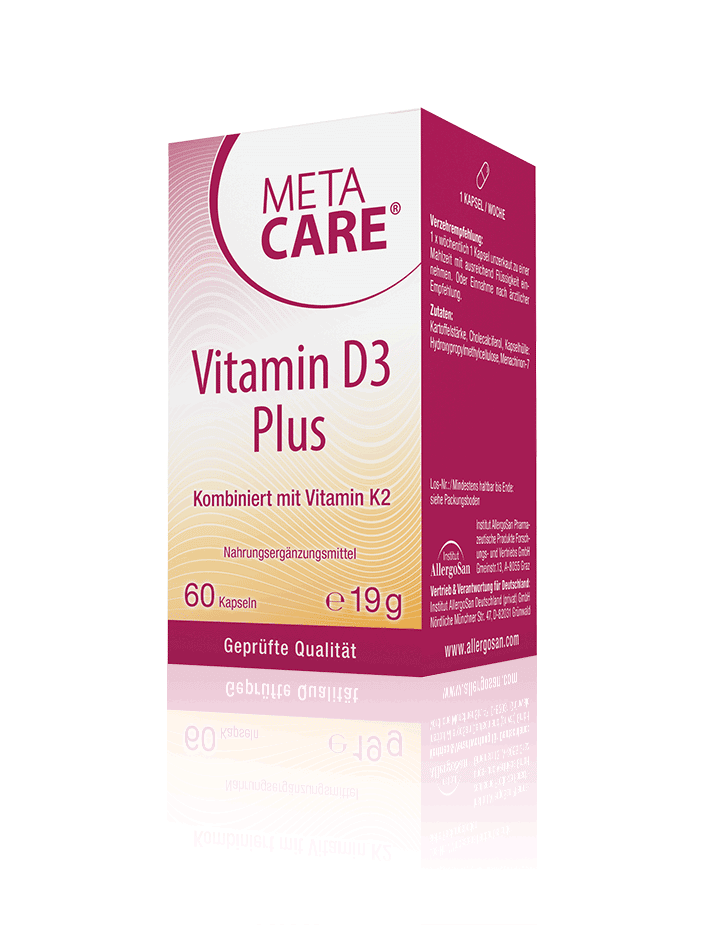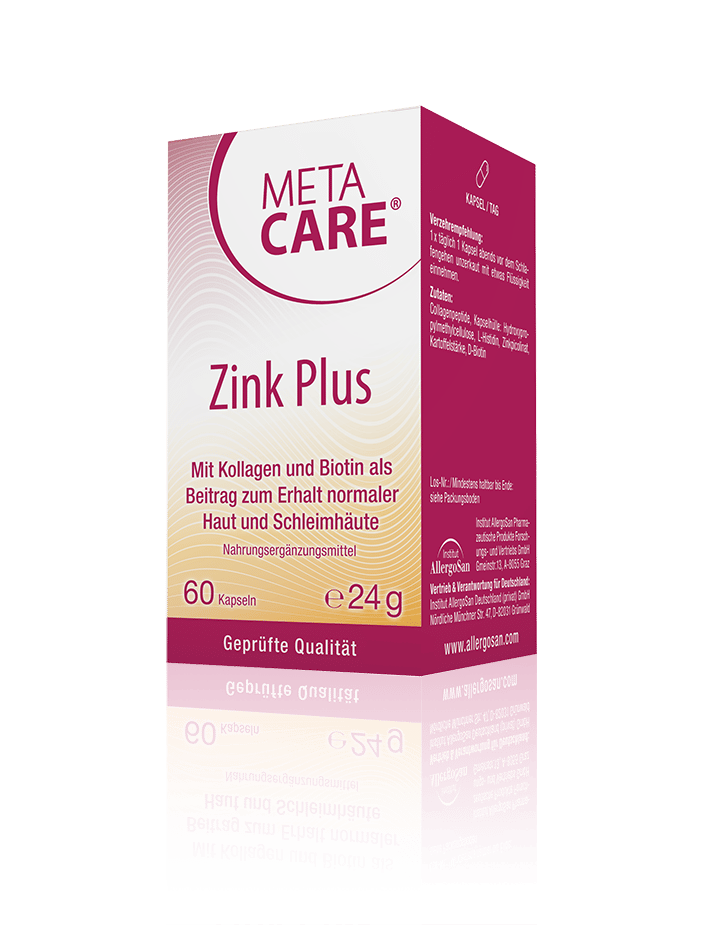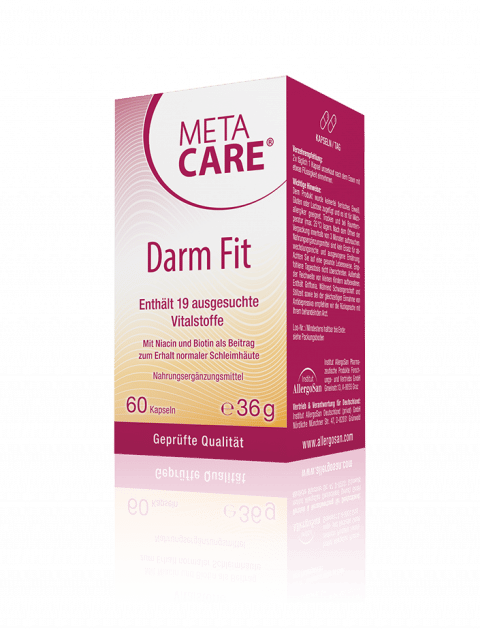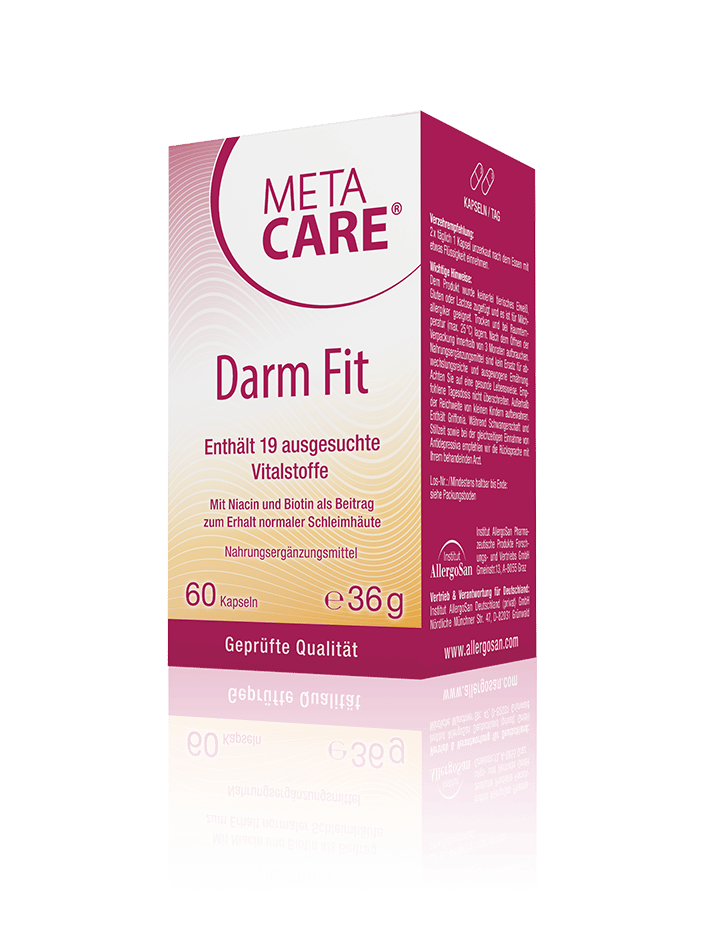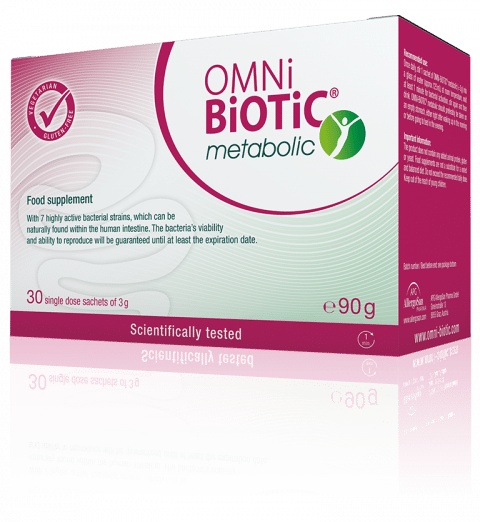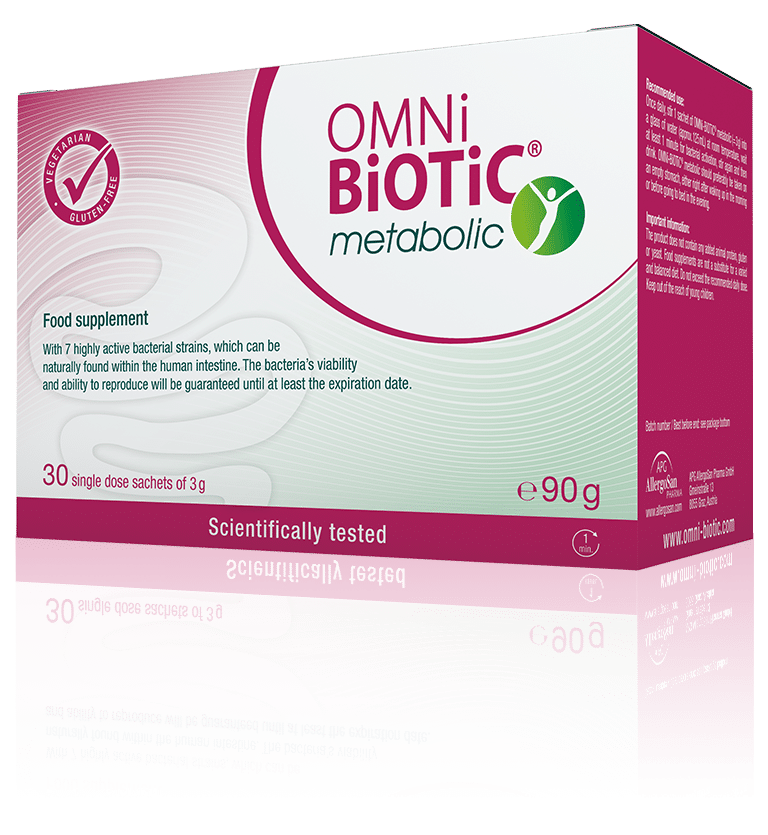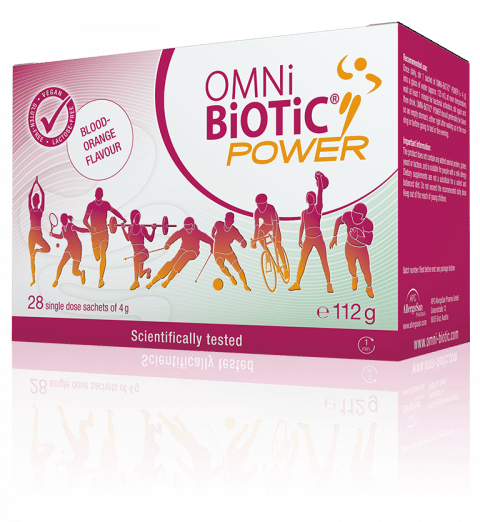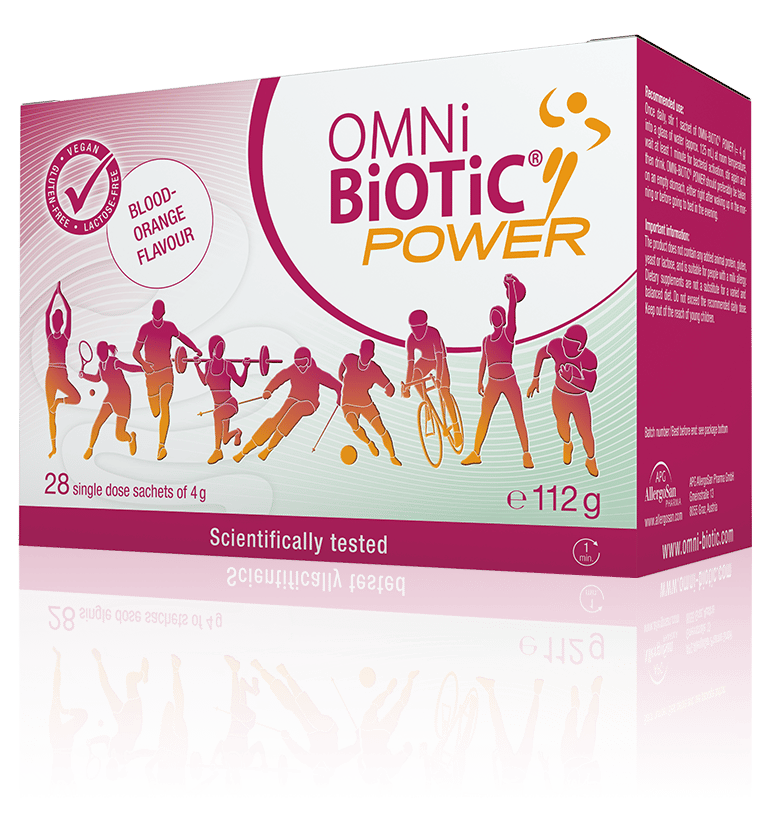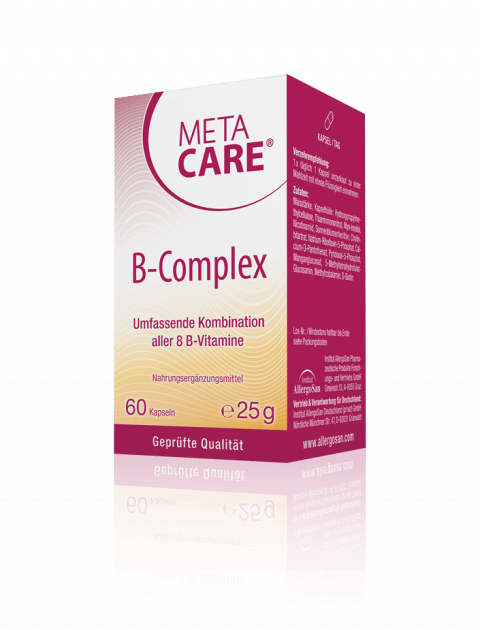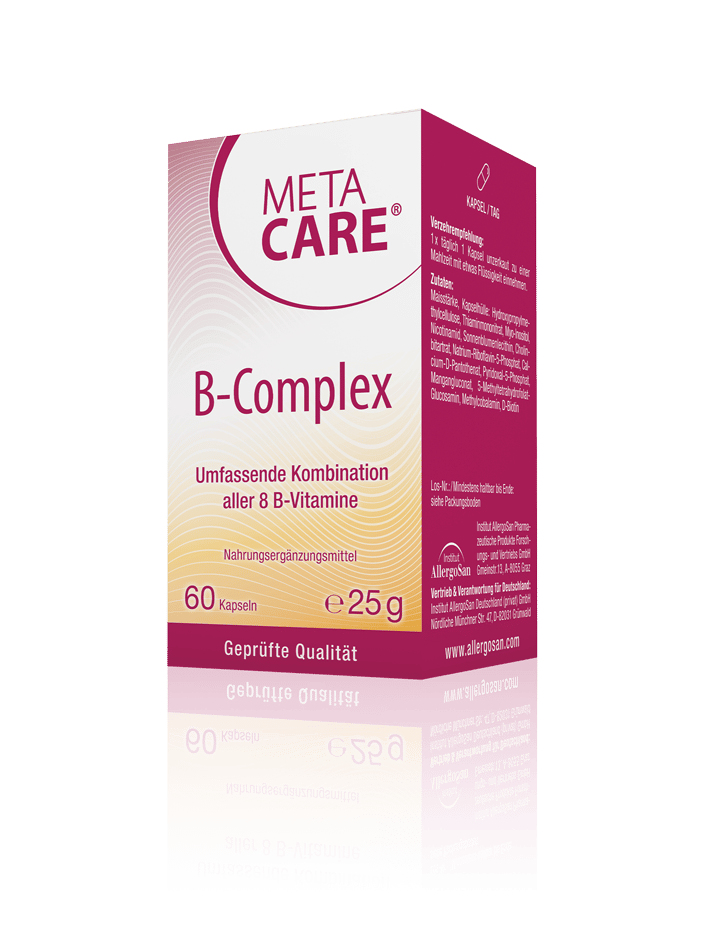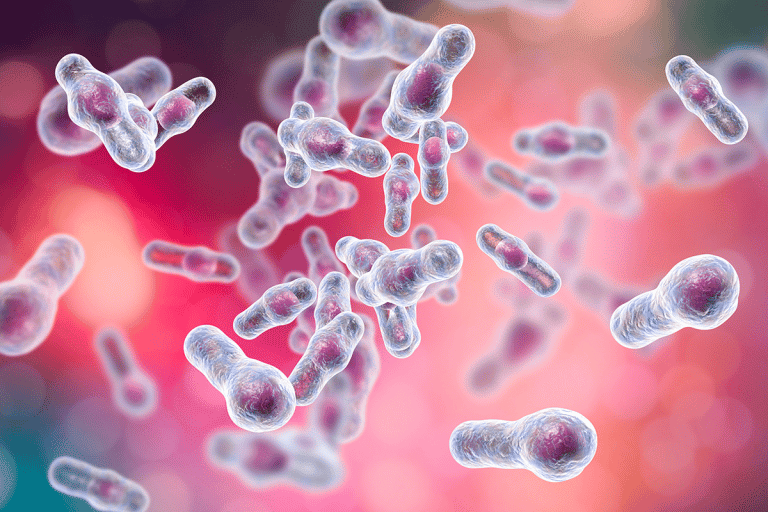
Our Skin
Healthy Gut = Healthy Skin
Indigestion is one of the most common problems that we suffer from in modern times. Turning to fast food, eating in a rush, and not exercising enough makes the intestines sluggish. However, this can also have a huge effect on our skin, which is known to reflect your gut health on the outside.

If your gut is not functioning how it should, then vitamins, minerals and trace elements such as zinc can not be absorbed properly, harmful substances are able to flood our bodies and allergic reactions become inevitable. The consequences - the skin reacts with pimples, acne or even with atopic eczema. The lungs may also become overwhelmed, resulting in chronic bronchitis, hay fever and asthma.
In a healthy intestine, trillions of active intestinal symbionts contribute to the fact that our metabolism works and our immune system can manage stressful influences, even if they are genetically determined, as in neurodermatitis. However, stress, unhealthy diets or the frequent use of medication such as antibiotics and cortisone destroy these intestinal bacteria and make the intestines susceptible to diseases and our skin to allergic reactions.
Help comes here in two ways: on the one hand, through specially developed probiotics, which fight putrefactive germs in the gut, balance the immune system and fight off pathogens such as fungi. On the other hand, vital substances that build up the intestinal mucosa, such as zinc and L-glutamine, are precisely tailored to the needs of sensitive skin. To date, nowhere in the world has it been possible to develop a one hundred percent method to cure sensitive skin. No wonder, because the health of our skin is multifactorial.

However, there are some steps that are sure to lead to success.
This concept is based on 3 pillars:
- Gut Cleansing
- Fighting Inflammation
- Reduction of Intolerances
If we look at the skin, it soon becomes clear that it does not end at our mouths, it just changes and then runs through our body as a so-called mucous membrane. If this mucous membrane is strained - due to improper nutrition or, most importantly, stress, then this manifests itself in the form of so-called low-grade inflammation. In the past, this was hardly noticed, since inflammation is much more obvious on the outside.
Today, however, it is known that healing of the skin is only possible if the intestine, with its incredible area of around 400 m2, is healthy. First of all, we need an intact intestinal flora. These quadrillions of tiny helpers decide whether our immune system works and even whether neurodermatitis flares up or behaves.
At the same time, it must be said that it is necessary to avoid all foods to which children especially react to as much as possible. They are the classics - eggs, all types of animal-based milk, cereal containing gluten (wheat, spelt, rye, oats) and nuts.
The skin microbiome is influenced by a variety of factors, such as diet, hygiene behaviour, age, gender, diseases or the use of medication.
Schuppenflechte
Psoriasis
According to Harvard Medical School's Medical Dictionary of Health, psoriasis is a common skin disease characterised by thickened patches of inflamed red skin; sometimes accompanied by painful joint swelling and stiffness. The willingness to react psoriatically is inherited in an autosomal dominant manner".
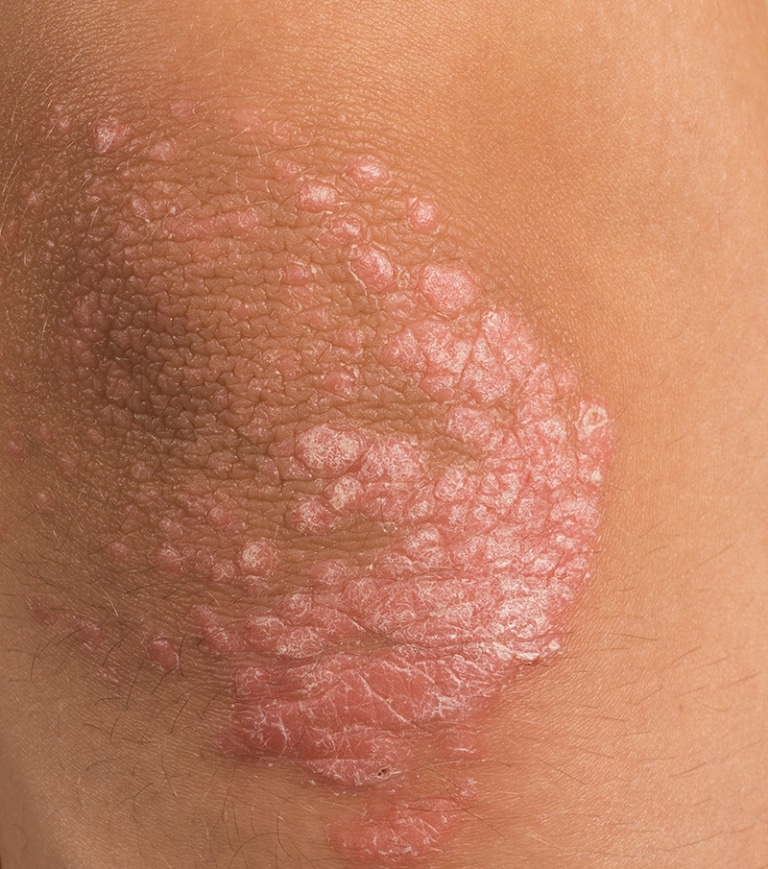
According to Harvard Medical School's Medical Dictionary of Health, psoriasis is a common skin disease characterised by thickened patches of inflamed red skin; sometimes accompanied by painful joint swelling and stiffness. Modern medicine, however, still knows too little about this skin condition, it is based on assumptions and very different treatment approaches. It is therefore not surprising that classical conventional medicine has so far remained without safe treatment successes in this field. PUVA radiation, fumaric acid and cortisone treatments sometimes have enormous side effects, but often provide only short-term relief. As a result, methods of integrative medicine for the treatment of psoriasis are becoming increasingly important, many patients then want to take their treatment into their own hands. In the following, we would like to show you some possibilities with which above-average success has been achieved.
Avoiding triggers
The psyche is often crucial for triggering a psoriasis flare-up. As a preventive measure, it is recommended to do daily relaxation exercises (autogenic training, yoga, etc.), or to take a herbal supplement to prevent mental overload (for example, the African black bean, lat. Griffonia simplicifolia).
Gut cleansing
You should not only be thinking about cleansing your gut when you have digestive problems (such as diarrhoea, constipation or chronic flatulence). After all, the skin is also a reflection of your gut health!
Probiotic bacteria can promote regulated digestion (detoxification) in the intestine and promote the removal of putrefactive and fermenting substances, as well as support the absorption of all vitamins and trace elements that are necessary for healthy skin regeneration. In addition, it can be of great advantage to support the mucous membranes of the intestine in their regeneration.
Changes in Diet
Many psoriasis sufferers react with an improvement in skin symptoms if avoiding consuming nightshade vegetables and plants, especially tomatoes, aubergines, peppers and potatoes. At the same time, it is extremely important to avoid anything in your diet that could harm your gut or liver. That includes alcohol, fatty foods, and high sugar consumption.
Remove dead skin cells
This should always be done when skin flakes have formed to such an extent that penetration of the nourishing cream into the affected skin layers is hindered. This is best done in a lukewarm bath and you should stay in it for a maximum of 10 minutes, the flaky skin can gently be removed with a washcloth. The quality of the shampoo/shower gel is important here.
Proper skin care
Proper skin care should include the following:
- A high concentration of gammalinolenic acid, which rebuilds the cell walls of the skin cells.
- Natural ingredients that, on the one hand, help to retain moisture in the skin and prevent rapid desquamation, on the other hand, care for the skin and regain its elasticity through cold-pressed oils.
- A pleasant consistency and excellent tolerability
- Preservation by natural vitamin E
- Free from cortisone, as the skincare or cream can be used for life
Itching
In the area of the scaly scalp, severe itching often occurs. The best results are shown by the use of zinc, as it reduces the release of histamine and the itching. Zinc is also one of the most important trace elements of our bodies and it is involved in more than 300 different metabolic processes, especially those that are beneficial for healthy skin. The importance for those affected by psoriasis lies in the natural promotion of a healthy skin structure. Zeolite is also a very special lava rock, purified by water over millions of years, which cannot be absorbed by the body. It has a strong detoxifying "sponge effect" on toxins and heavy metals in the body.
Detoxification
Since people with psoriasis have usually taken various courses of strong medication over time and usually have long-term cortisone use behind them; detoxing the body is therefore of particular importance. This can be done in the most cost-effective way, by drinking 3 litres of water or mild herbal tea daily. Additionally recommended is to take a selection of various herbs and effective microorganisms over a set period of time to support the gut cleanse.
Our tip: We have also had good experiences with humic acids, especially with psoriasis sufferers who repeatedly suffer from soft stools. This is an indication of toxins that have not been removed from the intestine after infections, for example. Humic acids are able to envelop these toxins and excrete them within a few weeks.
Stress
If we are in a stressful situation, the brain releases neurotransmitters (messengers of nerve cells) and stress hormones within milliseconds. If this is only the case for a short period of time, stress is not really problematic. However, with prolonged or daily recurring stress, there is a depletion of the necessary stress hormones and the body reacts with inflammation, which we feel especially in the intestinal area and in our joints. As a result, psychological, emotional and cognitive problems may occur such as depression, anxiety, concentration disorders or addictive behaviour.
Fatigue
Stress, illness and environmental toxins deplete the tiny "power plants" of our cells, the so-called mitochondria. The fuel that supplies the mitochondria with the appropriate energy for high performance is coenzyme Q10. There are many studies that assign coenzyme Q10 protective properties against free radicals, as well as increased efficiency and a shortening of the regeneration phases.
Neurodermatitis in Childhood
Atopic dermatitis: What to look for? Why is my child affected? How to deal with the diagnosis? In addition, probiotics can protect babies from atopic dermatitis even during pregnancy and after birth.

